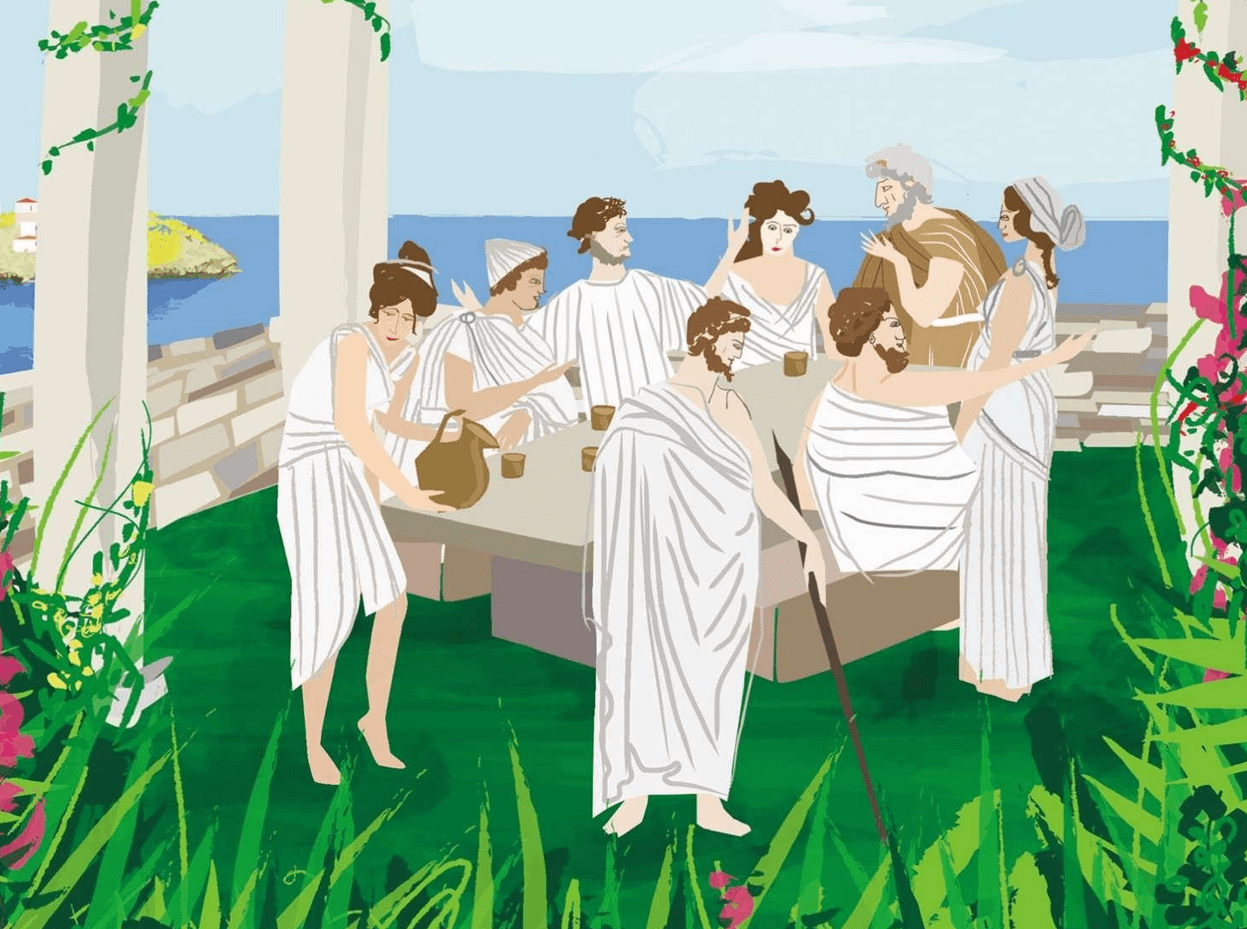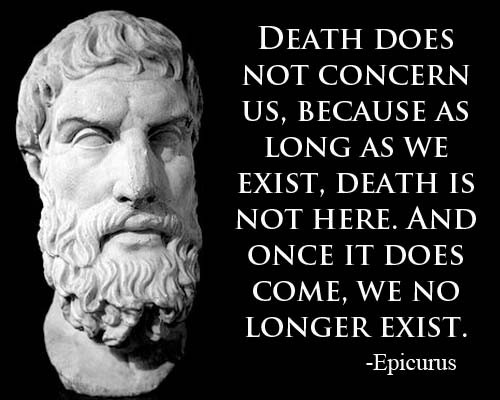Dear Classical Wisdom Reader,
One of the best things about living in Argentina is Brazil.
I kid - but in all seriousness, while I love the Paris of the South, the Argentines can be at times... charmingly neurotic. Boasting the highest rate of therapy per capita, they could be collectively seen as a ‘glass half empty’ culture.
When explaining why we live here (which we have to do often), the Argentines will simply reply with how horrible everything is...the doom and gloom of yet another crisis... and then try their best to dissuade us from ever saying anything positive ever again.
The Brazilians, however, are the exact opposite. A short two and half hour flight north and the smiles suddenly appear with the warm sunshine. People regularly dance in the streets on their way to the ocean, with caipirinhas and brightly colored sarongs flowing. Here every body is a beach body and everybody is on the beach.
Of course the amazing thing is that by all accounts the Brazilians are poorer than the Argentines. There is a higher rate of violent crime. There are more diseases...and parasites.
So why are they happy? I can’t say for sure, but it seems to me there is an element of Epicureanism about the culture. The appreciation of a cold drink on a hot day. The enjoyment of a fresh plate of shrimp and rice. The delight in the rhythm of the music, the sway of the hips.
Of course I’m talking about Epicureanism with a capital E - the ancient sort and not the commonly misunderstood concept you see today in apps and advertising.
But what exactly did the Hellenistic philosopher say and do? Today’s article delves into the Proto-Scientist, Secular-Saint, and Sophisticated Hedonist that was Epicurus. Read below to get a glimpse into true happiness!
All the best,
Anya Leonard
Founder and Director
Classical Wisdom
--->
Fun Fact! Brazil’s most famous river and Bezos namesake, the Amazon, is classically inspired! Yes dear reader, the rumors are true. The name Rio Amazonas was reportedly given after native warriors attacked a 16th-century expedition led by Spanish conquistador Francisco de Orellana. The warriors were led by women, reminding de Orellana of Greek mythology’s women warriors.
This week’s Member’s resources include our Classical Wisdom Litterae Magazine, dedicated to Warriors - including the return of the Amazons! Unlock all of Classical Wisdom’s resources with our special birthday offer (Valid for the next week only):
Epicurus – Proto-Scientist, Secular-Saint, and Sophisticated Hedonist
By Jacob Bell, Contributing Writer, Classical Wisdom
There is probably no other ancient Greek philosopher who has been so misunderstood in our modern era. Nowadays his philosophy is associated with excess and drinking and food apps… but the reality is, he preached the exact opposite. Indeed, his name should connote moderation, science, atheism, death…and happiness?
Who are we talking about? None other than Epicurus.
A radical thinker of his time, Epicurus was a philosopher of the Hellenistic period, living from 341-271 BCE. Living in accordance with his philosophy, which came to be known as Epicureanism, he lived a rather simple, peaceful, and relaxing life. He utilized his garden as a classroom, and relied heavily on donations to survive.
Aside from the occasional college party, Epicurus and his students lived mostly on bread and water.
The Epicureans adopted empiricism as their theory of knowledge and atomistic materialism as their theory of the cosmos. They developed an egoistic hedonism as their theory of ethical values, and aside from specific cases, the Epicureans ignored politics and valued friendship above all other human relations, even familial ones.
If you ever thought that friends were god’s apology for family, then you might actually be a follower of Epicurus.
Epicurus developed his philosophy with a practical aim in mind, and so employed the use of logic and rationality as a means to happiness, rather than as tools for uncovering the truth for truth’s sake. Rejecting the importance of mathematics and purely scientific pursuits, he was interested in logic insofar as it served physics, and interested in physics insofar as it served ethics. Epicurus viewed many philosophers with a feeling of antipathy, denounced religious dogmatism, railed against the skeptics, and argued for a secular world. In sum, it’s surprising that he didn’t meet the same ending as Socrates!
For the Epicureans, the senses are fundamental and at the basis of our knowledge. Senses have dominion over reason, because reason relies first on sense perception. We can only reason about something once we have gathered data from our senses about the thing in question. According to Epicurean theory, we should then judge this information according to our feelings or passion, and we should choose that which gives us pleasure, and avoid that which gives us pain.
Does this mean that we have a justified theory of excessive drinking and eating? Don’t grab for that second bottle of wine just yet.
Although Epicurus outlines a hedonistic ethic, it is a sophisticated theory that encourages moderation. After all, we won’t be happy tomorrow when we wake up to a throbbing head, sour stomach, and purple lips… especially if there is photographic evidence.
First identifying with Aristotle’s notion that happiness is the highest good, Epicurus then couples this with the idea of pleasure, concluding that pleasure is the only manner from which to obtain happiness. Epicurus’ view of choosing the best pleasure consists in contemplating the future and choosing the option that will provide sustaining contentment and absence of pain. We must look to the future to determine what will be the cause of more pleasure and less pain.
With this in mind, in the final analysis, we will gain more pleasure from moderating our intake of wine, and we will endure less pain by going to the dentist and getting that toothache taken care of… you know, before you need that root canal.
Just as important to the Epicurean ethic is a reduction of desires. If we want less, we will be happy with less. The Epicurean path to happiness is not a result of an excess of external pleasures or material goods. Live simply, and without an excess of wealth or luxury, says Epicurus, and with that proclamation he very well may lay claim to the title of “first western minimalist!” Moderation, temperance, and cheerfulness are Epicurean virtues; unbridled luxury and feverish desire Epicurean vices.
In a seeming contradiction to a hedonistic ethic, Epicurus believed that it was more pleasurable to do a kindness for someone rather than receive one. He also held that we should attempt friendship with all of mankind, and if this is not possible, at least don’t make enemies, and if this fails, and we make an enemy, avoid interacting with them.
Friendship was the highest human relationship for Epicurus because it provided security, tranquility, and pleasure. He also urged against the rat race, because a race for wealth, fame, or power would destroy tranquility and peace by placing the contestant at the mercy of chance, public opinion, and disrupt the enjoyment of friendship. For similar reasons, a man who seeks to be happy should stay out of politics unless he has such an urge to a political career that he couldn’t be happy without it… and let’s be honest… those people probably shouldn’t be politicians in the first place.
Being concerned with the pragmatic value of philosophy, and against truth for truth’s sake, it may again seem contradicting that Epicurus held so many proto-scientific views. He adopted, with a few changes, Democritus’ atomistic theory of the cosmos. Epicurus believed that the universe was made up of the void (empty space) and an infinite number of small indivisible bits of matter in motion called atoms. These bits of matter make up the world by coming together to form the objects of the world, including us. Because of this, Epicurus also believed that the mind could be found in the body, and he argued against the idea of an immaterial soul that might live on once our body has died.
He sought to discredit the mythological concepts of the world and its creation, and so proposed a purely mechanical explanation for our world coming into existence. Through the use of mechanical and atomic explanations of the natural world, he denied any interference of gods within human affairs. He also claimed that our world is just one of an infinite number of worlds, and that worlds come into existence, grow for awhile, decline, and eventually perish.
With this, Epicurus became one of the first proponents of the multi-verse theory!
Now, you might be wondering, how do these theories align with the idea of happiness being the highest good man can achieve? How can these theories help us live a better, happier life? After all, Epicurus has seemed to abandon the idea of god as a creator, the immaterial-eternal soul, and the idea of an afterlife.
Well, for Epicurus, the existence of gods interfering in our world, and the possibility of punishment after death, was a great source of anxiety. Therefore, by justifying the world without need of a god, soul, or afterlife, he believed that he would relieve himself and others of this anxiety. Furthermore, he argued that death is nothing to be fearful about, because it does not concern us. Defending this notion, Epicurus stated that, “death is nothing to us; for that which is dissolved is devoid of sensation, and that which is devoid of sensation is nothing to us”.
Imagine the eternity before your birth… the eternity of nothingness. That doesn’t seem scary; you didn’t experience that nothingness. That same kind of eternity is what comes after death, according to Epicurus, and so we shouldn’t be afraid of that either.
In addressing his peers, Epicurus announces the benefits of his secular system of philosophy:
“…They anticipate or have forebodings of the eternal terror related in the myths, or even fear the absence of sensation in death as if it concerned them… But tranquility belongs to him who frees himself of all these misconceptions and has a continuous remembrance of the whole and the most important truths.”
And here, as I address you all, these most important truths, more than any food app or extra bottle of wine, can give us true happiness.









Epicurus engages in circular reasoning. Death does not matter while alive and has no existence to him. However, when it arrives it matters not because you no longer exist. He makes the fallacious assumption that existence and life are identical. Life does begin at birth and ends in death but existence knows no such bounds. He is circular because he proves life by the nonexistent death and the non existent life when the non existent death manifests. About like dating fossils in the strata by the date of the strata and dating the strata based on the fossils contained in it.